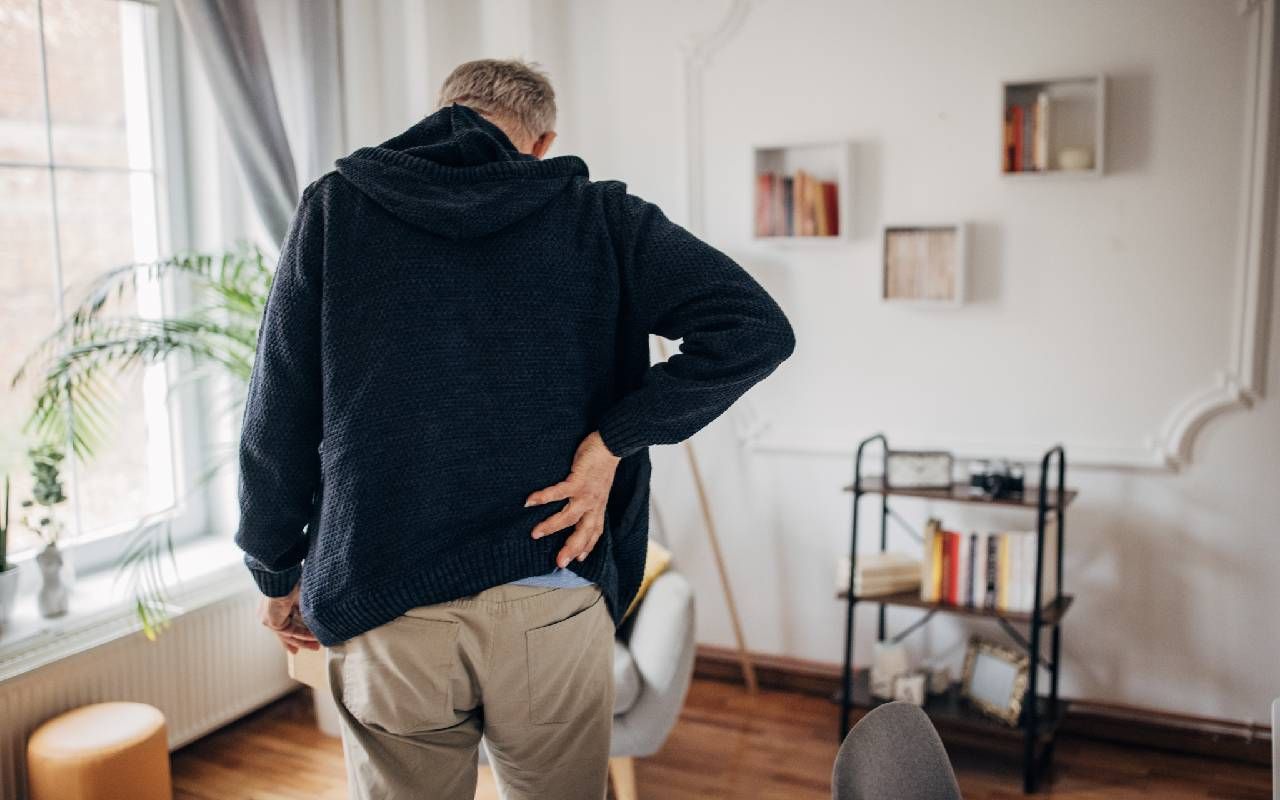Handling a Loved One's Physical Pain
What can you do when hovering concern doesn’t help?
My husband is a mild-mannered man, ungiven to criticism. So, when Bob recently told me, with a distinct edge in his voice, "You don't handle other people's physical pain well," it got my full attention.

I've been dealing with other people's physical pain for a long time. First up was my late husband, Joe, who during the two-and-a-half years prior to his death in 2009 endured a bombardment of physical agonies from his treatment for leukemia. Next was my sister, whose two-and-a-half-year battle with stage 4 colon cancer turned fatal in 2010. Then there was my mother, who turned from beige to yellow to orange as her liver failed that same year.
But witnessing high-level pain day after day after day? That's what life has been with Bob for almost three years now as he battles debilitating back and leg pain.
In each case, I could emotionally withstand their physical pain. Bad as it often was with Joe, we both knew if he toughed it out, the pain would subside. With my mother and sister, as horrifying as I found it to see them in pain, I always knew I would be heading home shortly.
But witnessing high-level pain day after day after day? That's what life has been with Bob for almost three years now as he battles debilitating back and leg pain from a combination of stenosis, sciatica and arthritis. There have been breaks in the cloud cover after some procedures, providing days, even months of relief. But then the pain comes roaring back, hindering his ability to do much more than clutch the walls, the furniture, a cane or a walker, as he tries to move around our condo.
For several months last year, it wasn't just Bob who was unable to navigate the simplest tasks without contorting his body against the pain. There was also Adam, his son, who lived with us for several months before pancreatic cancer took him from us.
I'd never witnessed physical pain of that magnitude. I think that's when I began to look down, around, away. Seeing someone in that kind of pain and not being able to do a damn thing about it is one of the most helpless feelings imaginable.
Bob is not a complainer. But the expression on his face, the tilt of his body, the intake of his breath constantly informs me how much pain he's in. And seeing it, I've constantly felt the need to acknowledge it, ask questions, remind him of small measures that might help ease the pain. Given that we both work from home, we're around each other all day. That's a lot of conversation and commentary about pain — which Bob has now indicated ain't helping.
Looking for Advice
So, I reached out to my sister-in-law Lou Anna, a nurse practitioner, for advice. Back when Joe was first diagnosed with leukemia, I'd had a hard time absorbing all the horrified gasps and meaningless upbeat predictions offered by relatives and friends. I'd heard in their well-intended reactions a need for reassurance that I could not give — much as I imagine Bob hears my own expressions of concern.
Lou Anna, by contrast, offered what I would come to regard it as the gold standard of responses. "Well," she said, her tone both matter-of-fact and inflected with upbeat energy, "now we know what we're dealing with." While acknowledging Joe's condition, it neither lent to our upset nor required a response.
Over the last decade, Lou Anna faced daily pain with her own husband, my immuno-compromised brother Alan, who in his final years was in such agony that he couldn't leave their house at all. Like Bob, Alan never complained. Like me, Lou Anna got a minute-by-minute readout through her husband's mood, facial expressions and body language.
"I didn't ask him about his pain because I knew he was in pain. It was more about acts of service. Getting him food. Getting him water."
Now, I share Bob's comment with her about my not handling his pain well. "Help!" I say. "How can I do this better?"
"All I would do with Alan is say, 'I know you're in pain. Is there anything I can do?'" she offers
"So, you wouldn't try to discuss the pain?" I ask.
"Initially, I jumped at everything," she says. "Then, I stopped. I didn't ask him about his pain because I knew he was in pain. It was more about acts of service. Getting him food. Getting him water. Not making a big deal out it."
"When he was badly contorted from the pain, did you sometimes have to look away?" I ask, knowing how awful and unkind this sounds.
'Sometimes You Have to Walk Away'
"Absolutely," she says, to my relief. "And sometimes you just have to walk away. I wasn't mad at Alan. I was mad at our situation. That we were being robbed of all the things we'd planned to do together."
Amen, sister, I think, remembering all the trips and get-togethers that Bob and I have had to cancel because he was in too much pain to hit the road. Seeing your spouse suffer unremitting pain is, of course, the ugliest part of the chronic-pain hellscape. But it's also very hard to see all the things you've been planning and looking forward to go up in smoke again and again, with no relief in sight.
"Just say, 'I'm sorry you're having a bad day.'" I find the advice difficult. It leaves me feeling useless and sometimes helpless.
I tell Lou Anna that in some ways, what's going on with Bob is harder than what I faced with Joe. In Joe's case, we could usually count on his bouncing back to functionality after whatever chemo bombardment or side effect had flattened him. With Bob, while there is thankfully no illness, there is also less and less hope of relief.
"It's the same as with Joe," Lou Anna responds. "Now, you know this is what you're dealing with. Now you figure out how to work your life around this."
Her comment makes me realize that I've been doing that for some time now, adjusting and readjusting my lens to match the realities of our life together. Instead of stewing in disappointment over a recent cancelled overseas trip to see Bob's best friends, for instance, I'm just hoping we can still make it to an upcoming family wedding. But I'm well aware that while Bob is in good enough shape today to make the two-hour drive, come the day of the event, he may not be.
Moving forward, there's one more option that may provide relief for Bob's pain if he proves a viable candidate. He and I are approaching the prospect of this major surgery cautiously, carefully and not without skepticism. After so many failed procedures, hard-earned experience has taught us that while it may work, it also may not. Or that it may work for a time. And then it won't.
Whatever happens, my sister-in-law reminds me, we have to remain hopeful. "Hope and love," she says, "truly belong together, as in the words of Forrest Gump, 'Like peas and carrots.'"
As I wrap up our phone conversation, I tell Lou Anna that recently I asked Bob what would be most useful when I see him in distress. His advice echoed hers: "Just say, 'I'm sorry you're having a bad day.'" I admit to her that I find the advice difficult. It leaves me feeling useless and sometimes helpless.
"Don't beat yourself up," Lou Anna says. "You're doing the best you can."
I'm trying. But is it helping?
"Absolutely," Bob tells me.


